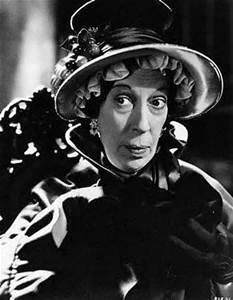
If you are looking for a story portraying undying love and a completely unexpected finish, Tale of Two Cities by Charles Dickens is the place to go. Published in 1859, it is set in the late 18th century with the background ofthe French Revolution. This serial novel depicts the lives of characters from two different countries, France and England. It is about a young man named Sydney Carton who ends up sacrificing his life for the life of his dear friends.
While Sydney Carton was definitely recalled to life, many overlook another character who was also recalled to life. Miss Pross, who was the sister of Solomon Pross (aka John Barsad—the fugitive spy), is another character who progressed over time. Even though her love wasn’t shown as audaciously as Carton’s was, she definitely laid her life on the line by her actions. She grew in gentleness, devotion, and compassion toward Lucie.
Miss Pross grew in gentleness. As Lucie’sgoverness and caretaker, many would automatically assume that she would be very strict and forceful. However, even though she seemed forceful toward the beginning of the book, as her love grew toward her student, she began to treat her like a daughter. At first, Miss Pross was described as “the wild red woman, strong of hand . . .” (pp. 112) who had a short temper. Nevertheless, Jarvis Lorry grew to like her
. . “whose acquaintance [Lorry] had first made at the Royal George Hotel at Dover and had since improved” (pp. 112). Her first signs of a new beginning were allowing Lucie to plan her future herself; moving out with Darnay was a big step for Miss Pross. Lorry described her as “very jealous but . . .beneath the service of her eccentricity, one of those unselfish creatures—found only among women—who will, for pure love and admiration, bind themselves willing to slaves . . .”
In addition to this, Miss Pross was extremely devoted to Lucie. When people began visiting her “Ladybird”, her nickname for Lucie, she became extremely jealous. In a conversation with Lorry, she admitted, “I don’t want dozens of people who are not at all worthy of Ladybird, to come here looking after her.” (pp. 112) As a result, she ventured with Lucie everywhere; she accompanied Lucy to Dover to retrieve her father, to the trials of Darnay, to church, and to multiple other destinations.
Miss Pross’s devotion eventually led her to risk her life to protect Lucie. Madame Defarge, who portrayed the enemy of France, attempted to murder everyone from the Evremonde family. However, Miss Pross stayed back while Lucie and her family and friends escaped; the result of this was that Madame Defarge ended up getting killed. Miss Pross was willing to sacrifice her life for Lucie.
Lastly, Miss Pross grew in appreciation for people as a whole. When Dr. Manette went back to shoemaking after Lucie and Darney’s wedding, she was extremely concerned. She schemed with Lorry to trick Manette out of his despondency and ended up sacrificing her sleep and time toward him. The reason why she was so concerned was that she wanted to hide the fact that Lucie’s father was regressing so that Lucie would not worry. Moreover, her protectiveness of Lucy showed her dire love for her. In addition to her compassion for Dr. Manette and Lucy, she continuously hinted that she appreciated Darnay.
In conclusion, Miss Pross changed immensely from when she was first introduced to the last chapter. During this entire story, Darnay—Lucie’s husband—was being unjustly tried by the French court; Madame Defarge was framing him. This led his family and him through many moves from England to France, and back to England.
Despite these curveballs, the French government was throwing toward him, Miss Pross stayed true to the people who meant the most to her. Through the hardships, she was molded and exhibited stronger character from when she was first introduced. Miss Pross can always be an example for those facing hardships.
